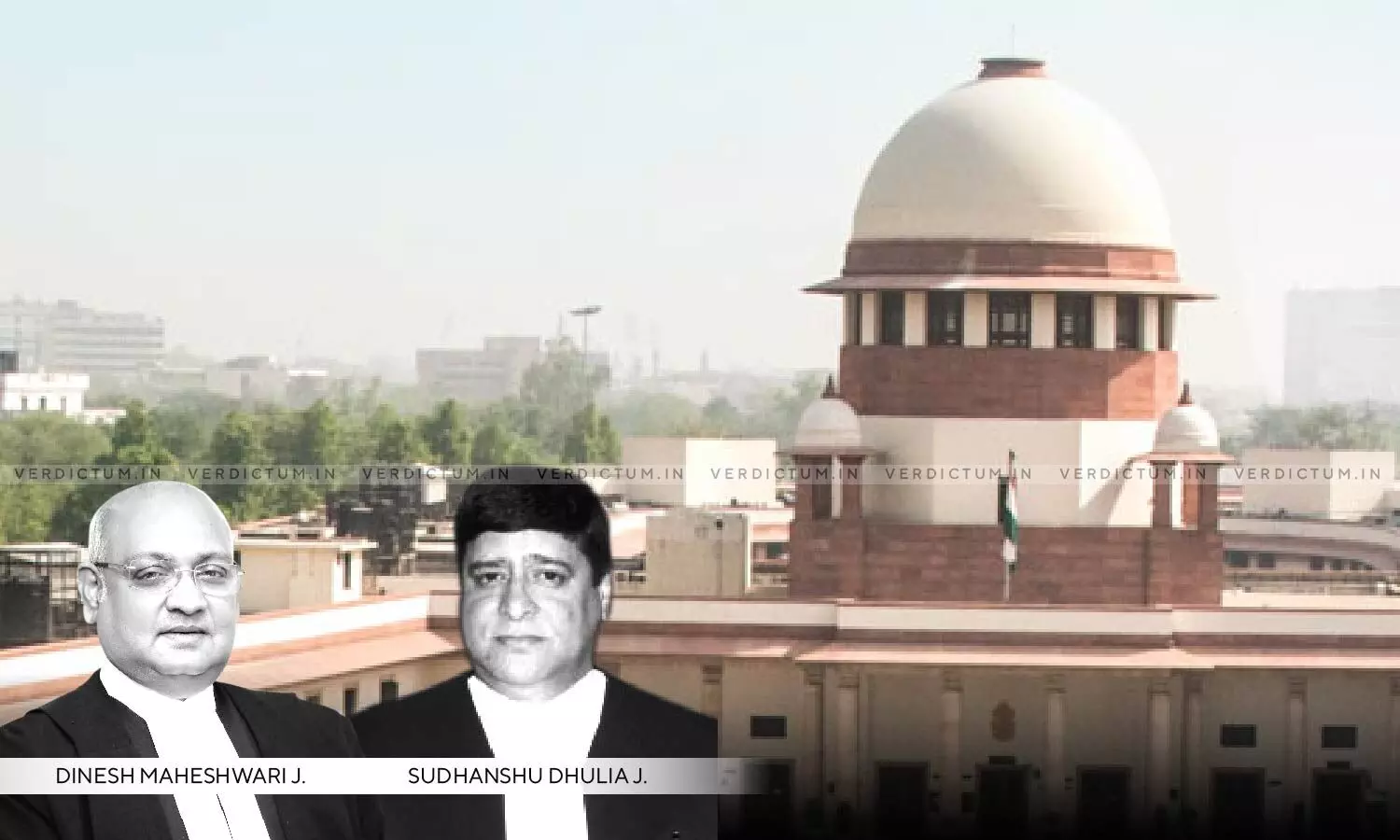
Merely Because Particular Evidence Was Not Adduced, Appellate Court Cannot Adopt Soft Course Of Remanding Matter: SC
 |
|The Supreme Court has recently held that merely because a particular evidence that ought to have been adduced had not been adduced, the Appellate Court cannot adopt the soft course of remanding the matter as per Rule 24 of Order XLI of the Civil Procedure Code (CPC).
The Court was hearing an appeal preferred against the judgment passed by the Kerala High Court wherein the appeal filed by the respondent against the dismissal of her suit for cancellation of a sale deed and for prohibitory injunction was disposed of with directions to the Trial Court to decide the suit afresh after de novo trial.
The two-Judge Bench comprising Justice Dinesh Maheshwari and Justice Sudhanshu Dhulia observed, “… merely because the High Court could not reach to a conclusion on preponderance of probabilities, the evidence on record could not have been treated as insufficient so as to not pronounce the judgment in terms of Rule 24 of Order XLI CPC. … merely because a particular evidence which ought to have been adduced but had not been adduced, the Appellate Court cannot adopt the soft course of remanding the matter.”
The Bench noted that certain circumstances existed in favor of the respondent and certain other circumstances existed in favor of the appellant.
M/s SRM Law Associates represented the appellant while Senior Advocate I H Syed and Advocate James P. Thomas represented the respondents.
Brief Facts –
A civil suit was filed by the respondent against the appellant and her sisters for setting aside a sale deed. The property consisted of a land and cinema theatre which was originally owned by the father of the respondents. The respondent made a request for postponing the execution of the security bond in favor of the film distributor as her husband was out of the station but on being insisted, she signed the documents.
On enquiring, the respondent was informed that her share in the property has already been sold. She then realized that she was made to sign a sale deed instead of a security document. The Trial Court rejected the case of the respondent. On challenging such a decision, the High Court held the properties to be co-ownership properties and upheld the judgment of the Trial Court.
The question for consideration that arose before the Supreme Court was whether the High Court was justified in remanding the matter for trial de novo. The Court in this regard noted, “… the High Court was unable to arrive at a conclusion on the basis of the material on record. However, fact of the matter remains that on the basis of the same material on record, the Trial Court had indeed arrived at a definite conclusion that the plaintiff had failed to establish her case and hence, the suit was liable to be dismissed.”
The Court further noted that it is difficult to find why at all the findings of the Trial Court were not to be sustained or the decree was required to be reversed.
“… it is difficult to find any justification for remand by the High Court in the present case. … the scope of remand in terms of Rule 23 of Order XLI CPC is extremely limited and that provision is inapplicable because the suit in question had not been disposed of on a preliminary point. … the reversal has to be based on cogent reasons and for that matter, adverting to and dealing with the reasons that had prevailed with the Trial Court remains a sine qua non”, said the Court.
The Court asserted that remand in the case cannot be held to be justified in terms of Rule 23-A of Order XLI of CPC.
“… the present order of remand has been passed only on ipse dixit of High Court sans any reason or justification. … the High Court was not justified in remanding the matter for trial de novo without recording any finding if the plaintiff was prevented from examining herself or from adducing any other evidence as also without explaining as to on what ground the decree was being reversed”, the Court further asserted.
The Apex Court, therefore, restored the appeal for reconsideration by the High Court in accordance with the law and allowed the appeal, and set aside the judgment of the High Court.
Cause Title- Sirajudheen v. Zeenath & Ors.
Click here to read/download the Judgment